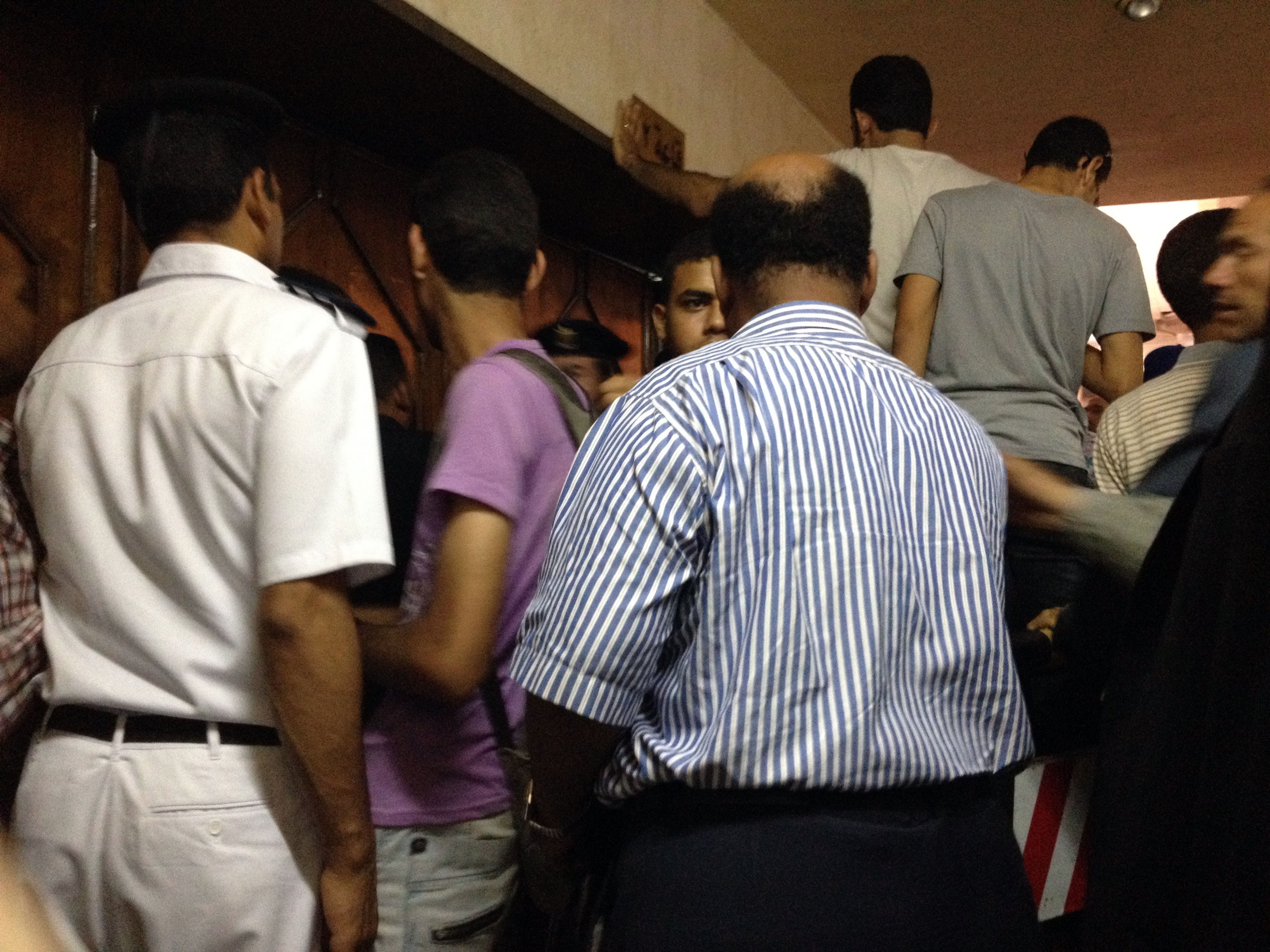CAIRO: Charismatic squash player Karim Darwish captivated sports lovers worldwide with his performance at the British Open last week. He stood a good chance of reaching the finals, and our hearts went out to him when he sustained an Achilles injury during the semis.
“I was playing a really good match against David Palmer, however, the floor was very slippery so I fell and was injured, so I wasn’t able to continue, explained Darwish. “It wasn’t a pleasant experience at all since my performance was really good and I had a chance of winning the tournament, but that’s luck, he added.
The 26-year-old, who currently ranks number eight worldwide, started playing squash at the age of seven, taking after his older brother Walid Darwish who played at Maadi Sporting Club. “I used to watch him train and I really got into the game, said Darwish. “He [Walid] encouraged me to start playing and used to play with me all the time, he added.
Two years later, Darwish came in third place in the under-10 national championships. He won his first international tournament in Holland at the age of 11 which gave him a push to take it further, and he started touring the world with the Junior Team at the age of 12.
Darwish joined the Professional Squash Association (PSA) in 1999. He recalls that the highlight of his career was the day he won the World Juniors championship in 2000. “It was the happiest day of my life, I couldn’t believe that I’d won the world championship, he explained. The finest match he played recently was at the British Open 2008, “I beat [Gregory] Gaultier three-love. I was really determined and focused and I did it, he said.
With five Egyptian squash players ranked among the top 20 worldwide, Darwish often finds himself playing against a fellow Egyptian in an international tournament.
“It not really nice to play against an Egyptian because we are together on a daily basis, whether it is training together or traveling together and, above everything else, we have all been friends for a really long time. Naturally, inside the court each one wants to win so I’d rather play against a foreigner, admitted Darwish.
With several Egyptian world champions, Darwish criticizes the Ministry of Youth and Sports for not allocating enough resources, money and attention to the Squash Union. “We’re not getting what we really deserve when we have four players ranked in the top 10 worldwide, Darwish said. The money given to the Squash Union annually usually covers the expenses of two to three tournaments when each player travels to around 15 tournaments a year.
Darwish’s schedule involves training two times a day, six days a week, along with a few trips here and there – it can get quite hectic. “When it’s too much traveling I get tired, but at the end of the day I tell myself that this is my career. Every job has its down side and, after all, I get to play the sport I love all the time, he said.
His busy schedule posed a particular challenge when he was still a student at the Arab Academy for Science and Technology (AAST). The university was supportive of the obligations being an athlete imposed and even granted him a scholarship.
Darwish dedicates his success to his parents and brother Walid, who encouraged him and gave him all their support ever since he started playing squash. Recently, a significant other is always by his side – his wife, Engy Kheirallah.
Being an international squash player herself, Kheirallah is like his good luck charm . One month after tying the knot, Darwish won the Oregon Open in Portland, a five-star PSA tour squash event.
“During tournaments I sometimes get tense but because she understands the game, she knows exactly how to get me relaxed and focused, he said. “It’s nice to have someone close to you who understands what you do and knows what it’s like to be in your shoes, he added.
Even though they both used to travel together with the Junior National Team at the age of 13, it was only in 2002 that they’ve became close friends.
“It’s fun, exciting and unique that both of us are squash players, said Kheirallah. “We share the same interests and the passion for squash so we perfectly understand what the other goes through and the problems they face, she explained.
On the other hand, it sometimes gets challenging for the couple as each of them has a jam-packed schedule of training and tournaments. They manage to work around that by going on to the same tournaments and training together as much as they can.
Each player benefits from the other’s expertise and feedback. “It’s definitely a plus having him around because we get to watch one another and point out the weaknesses and strengths of the opponents, said Kheirallah.
Darwish was scheduled to play at the Squash Super Series, which is a friendly tournament for the top eight players in the PSA, this week in London. However, due to his injury, he wasn’t able to go and fellow Egypt Wael El Hindi, who ranks nine in the PSA, went instead.
“He [Darwish] kicked off the season with an outstanding performance and I can see with his dedication and determination that his ranking will hopefully go up to the top four by the end of the year, said Amir Wagih, who has been coaching Darwish since he was 14 years old.

